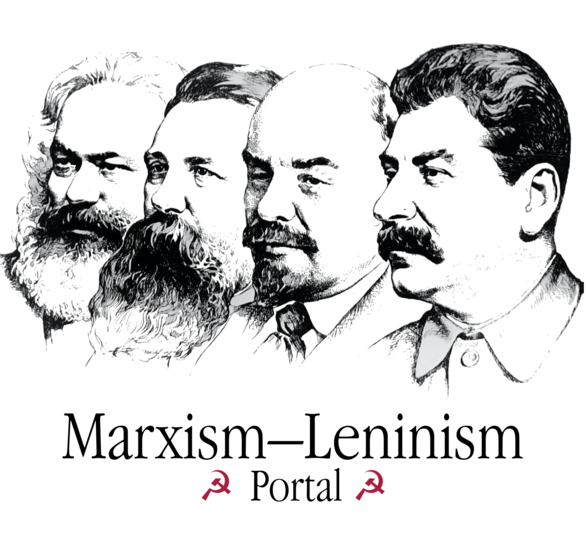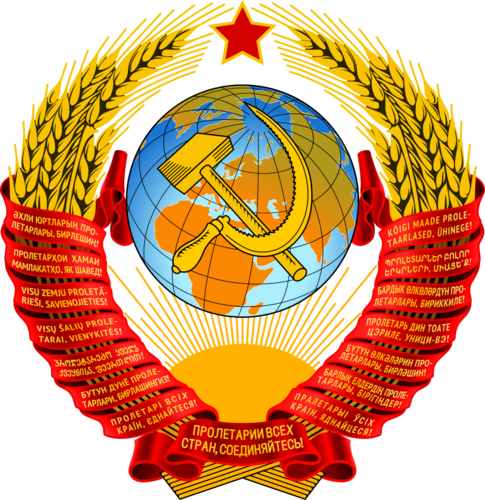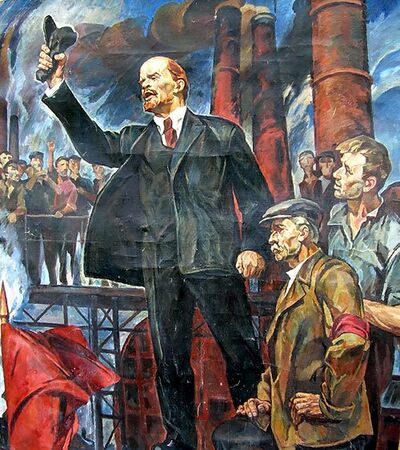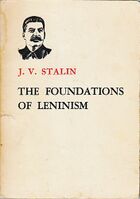Portal:Marxism–Leninism: Difference between revisions
RedParabola (talk | contribs) mNo edit summary |
RedParabola (talk | contribs) mNo edit summary |
||
| (2 intermediate revisions by the same user not shown) | |||
| Line 65: | Line 65: | ||
<h2 style="margin:0; background:red; font-size:110%; font-weight:bold; border:1px solid red; text-align:center; color:yellow; padding:0.2em 0.4em;">Relevant articles</h2> | <h2 style="margin:0; background:red; font-size:110%; font-weight:bold; border:1px solid red; text-align:center; color:yellow; padding:0.2em 0.4em;">Relevant articles</h2> | ||
<categorytree mode="pages" depth="10"> | <categorytree mode="pages" depth="10">Marxism–Leninism</categorytree> | ||
|} | |} | ||
|} | |} | ||
<!-- Selected quote --> | |||
{| width="100%" cellpadding="5" cellspacing="10" style="border-style:solid; border-width:3px; border-color: yellow; background-color:red;" | |||
| width="55%" style="vertical-align:top;padding: 0; margin:0;" | | |||
<div style="color:yellow; text-align: center;">'''Selected quotation'''<br> | |||
<hr style="color: yellow; background-color: yellow;" /> | |||
<imagemap> | |||
File:Foundations_of_Leninism_alt.jpg|200x200px|left | |||
default [[Foundations of Leninism]] | |||
desc none | |||
</imagemap> | |||
''"Leninism is Marxism of the era of imperialism and the proletarian revolution. To be more exact, Leninism is the theory and tactics of the proletarian revolution in general, the theory and tactics of the dictatorship of the proletariat in particular. Marx and Engels pursued their activities in the pre-revolutionary period, (we have the proletarian revolution in mind), when developed imperialism did not yet exist, in the period of the proletarians’ preparation for revolution, in the period when the proletarian revolution was not yet an immediate practical inevitability. But Lenin, the disciple of Marx and Engels, pursued his activities in the period of developed imperialism, in the period of the unfolding proletarian revolution, when the proletarian revolution had already triumphed in one country, had smashed bourgeois democracy and had ushered in the era of proletarian democracy, the era of the Soviets. That is why Leninism is the further development of Marxism."'' | |||
<br>'''[[Joseph Stalin|<span style="color:yellow;">Joseph Stalin</span>]], [[Foundations of Leninism|<span style="color:yellow;">Foundations of Leninism</span>]], 1924''' <!-- Include something else if you think it should be changed --> | |||
</div> | |||
|} | |} | ||
__NOTOC__ __NOEDITSECTION__ | __NOTOC__ __NOEDITSECTION__ | ||
Latest revision as of 02:46, 1 May 2024
|
|




